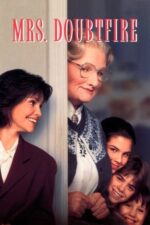More Than Just Food: How Restaurants Reflect Our Lives on Film
Isn't it funny how often restaurants pop up in movies? Not just as background scenery – though they certainly serve that purpose beautifully – but as places where stories unfold, where characters connect (or clash!), and where we get a real sense of what’s going on beneath the surface of a film. It got me thinking about it recently after rewatching "¡Casa Bonita Mi Amor!", which is just pure cinematic joy if you're even remotely familiar with South Park's history – seriously, go check it out! The sheer absurdity and nostalgia radiating from that place really highlights how much more than just food a restaurant can represent.
Think about it: restaurants are inherently social spaces. They’re where we celebrate milestones, commiserate over losses, conduct business deals (sometimes disastrously!), and even fall in love. That inherent drama makes them fertile ground for filmmakers. "Drop," for example, uses the setting of an upscale restaurant to ratchet up tension – a seemingly perfect date quickly unraveling under the weight of anonymous threats. It’s brilliant how the formality of the environment contrasts with Violet's growing panic and Henry’s attempts to be reassuring. The restaurant becomes a pressure cooker, amplifying the suspense.
Then you have films like "Nonnas," which use food – specifically Italian cooking – as a vehicle for exploring grief and community. The restaurant isn’t just about serving meals; it’s about preserving tradition, honoring memory, and finding solace in shared experience. It's a beautiful reminder that sometimes the simplest things—a plate of pasta made with love—can be incredibly powerful.
Even something seemingly unrelated like "Final Destination Bloodlines" uses a restaurant scene to heighten the sense of dread – it’s a fleeting moment, but it underscores the feeling that danger is lurking everywhere. And “Grand Maison Paris” shows us the intense pressure and ambition behind the pursuit of culinary perfection; the restaurant becomes a stage for Obana's relentless drive and the sacrifices he makes along the way.
And let's not forget "The Spinner." That film, with its unique blend of romance and crime drama, uses the bustling eatery as a backdrop to highlight the protagonist’s isolation and resilience. It’s a powerful visual metaphor – she’s surrounded by people, yet largely unseen, until her own voice finds a way to break through.
Ultimately, these films demonstrate that restaurants aren't just places we eat; they are microcosms of society, reflecting our hopes, fears, and connections in ways both subtle and profound. So next time you’re watching a movie and spot a restaurant scene, take a moment to consider what it really represents – you might be surprised by what you discover!
What films have you seen where the restaurant setting really stood out? I'd love to hear your thoughts!







































